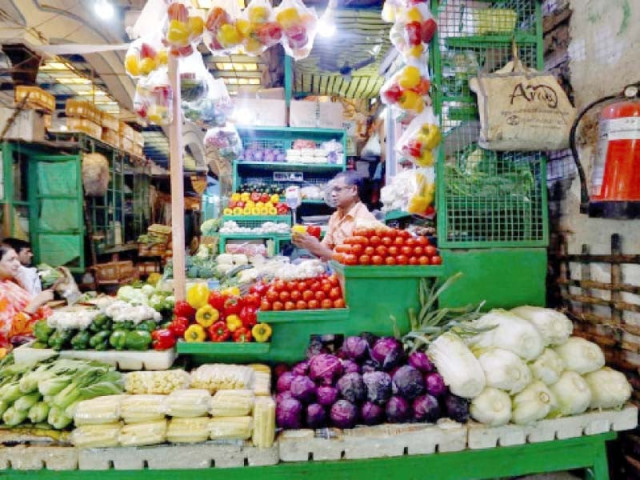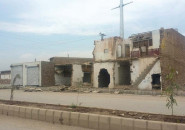Inflation peaks 12.3% with inflationary budget on horizon
Increase likely to make SBP further increase interest rates

For the fourth month in a row, inflation rate skyrocketed to another peak of 12.3% in December – the highest pace in nearly two years that also beat the government’s expectations, indicating the difficulties ahead once the highly inflationary mini-budget is implemented.
The fresh inflation reading may also cause further increase in interest rates by the State Bank of Pakistan that is now following headline inflation number (new 12.3%) to determine the policy rate instead of core inflation.
The Consumer Price Index (CPI), jumped to 12.3% in December over the same month a year ago, the Pakistan Bureau of Statistics reported on Saturday – a day after Prime Minister Imran Khan approved a Rs4 per litre increase in prices of petroleum products by under the International Monetary Fund deal.
The 12.3% annual inflation rate was the highest since February 2020, showed the statistics, dashing government expectations of keeping the index below last month’s reading of 11.5%.
The prices have been rising due to the government’s administrative decisions coupled with steep currency depreciation, which is making food, electricity and transport unaffordable for the common man.
Last month, the central bank increased interest rate by one percentage point to 9.75% to contain inflation, which is largely fuelled by factors that cannot be addressed by increasing interest rates.
The Wholesale Price Index (WPI) jumped to 26.2% in December, indicating that prices would remain very high in the coming months.
A major criticism against former finance minister Dr Abdul Hafeez Shaikh was that he failed to control inflation. While responding to a question on Thursday, Finance Minister Shaukat Tarin said that if he failed to control inflation then US President Joe Biden and UK Prime Minister Boris Johnson also failed.
The latest inflation reading suggests that prices have gone out of the control of the government, which has not yet fulfilled its promise to reduce ghee prices by Rs45 to Rs290 per kilo by slashing duties and taxes.
The central bank last month also adjusted upwards its inflation projection to 9% to 11%, although it claims to follow the federal government’s guidance on controlling inflation. For this fiscal year, the government has set the inflation target at 8%.
The CPI-based inflation accelerated to 12.7% in urban areas – the highest level since January 2020. The inflation rate increased to 11.6% in villages and towns – the highest reading since March 2020, according to the PBS.
It was mainly because of increase in prices of non-food items owing to the government’s decision to increase prices of electricity and petroleum products.
Non-food inflation surged to 13.4% in urban areas and 14% in rural areas in December, according to the national data collecting agency. It was the highest pace since at least 12 years when non-food inflation had been recorded around this reading.
The pace of food inflation accelerated to 11.7% in cities and to 9% in villages and towns. Prices of non-perishable goods jumped significantly as people still awaited the government’s decision to reduce prices of cooking oil, sugar and wheat flour.
READ PM Imran to put an end to inflation by fifth year, says Rashid
The surge in prices came amid a sharp fall in the rupee’s value over the past three months to around Rs177 to a dollar. On May 3, the rupee had traded at Rs153.36 to a dollar, which lost Rs24, or over 15% of its value.
The reduction in the rupee’s value is pushing up the cost of every imported commodity, including wheat, sugar, cooking oil, crude oil and raw material for industries.
Core inflation – calculated by excluding food and energy items –increased significantly to 8.3% in urban areas and 8.9% in rural areas last month, the national data collecting agency reported.
The core inflation-adjusted central bank’s real interest rate is still positive by nearly 1%, which does not warrant any further increase in interest rates. But the Governor SBP Dr Reza Baqir has been following the headline inflation rate to determine interest rates that would now require further increase in interest rate under the IMF deal.
The food group saw 12.3% increase in prices in December compared to the same month a year ago despite 10.2% reduction in prices of perishable goods. Prices of non-perishable food items soared 14.2%.
The PBS stated that prices of various types of ghee and cooking oil were higher by 56% to 61% last month compared to a year ago. The inflation rate for pluses was nearly 34%, fruits 30%, meat 20%, wheat flour 19%, wheat 14%, milk 14.5% and sugar 13%.
Inflation rate for the housing, water, electricity, gas and fuel group – having one-fourth weight in the basket – increased 16.6% last month, which is a double-digit increase due to the government’s decision to increase prices of electricity by 59.4%.
Household requirement group prices increased 12.3% and transport group prices rose 24%, clothing and footwear group inflation rate jumped over 11%, according to the PBS. Similarly, the dining cost at restaurants increased over 12%. The motor fuel prices was almost 40% expensive last month compared to a year ago.
Under the IMF pressure, the government has introduced Rs375 billion mini-budget, which will further increase cost of almost everything, including electricity, and enhance petroleum levy by another Rs20 per litre. Of Rs375 billion, the Rs343 billion worth of sales tax exemptions have been withdrawn.
The Rs4 increase in the price of petrol is part of a commitment made by the government under an agreement with the IMF for a net fiscal adjustment of almost Rs550 billion.
The price of petrol has been increased from Rs140.82 to Rs144.82, high speed diesel from Rs137.62 to Rs141.62, kerosene from Rs109.53 to Rs113.53 and that of light diesel oil from Rs107.06 to Rs111.06, according to the Finance Division's statement.
Average inflation during first six months (July-December) remained at 9.8% - far higher than the government’s target of 8% and initial projection made by the SBP.


















COMMENTS
Comments are moderated and generally will be posted if they are on-topic and not abusive.
For more information, please see our Comments FAQ